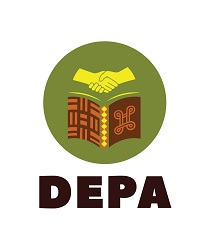Decolonising Peace Education: Change Makers Programme
Change-Makers is an intervention pioneered by the Johannesburg Holocaust and Genocide Centre that works with cohorts of young leaders in post-conflict countries across Africa, using relevant historical examples of atrocity to promote dialogue about human rights, resilience, and active participation in shaping a more peaceful and equitable future.
Project Introduction
This project aims to build on but also significantly develop research and impact relating to the Change-Makers programme, collaborating with academic partners in the UK (Leeds University) and an NGO in Mozambique (Centro de Estudios de Paz Conflito e Bem Estar, CEPCB), and with input from the Pedagogic University of Maputo (Mozambique). Specifically, the project team will co-produce a novel approach to the delivery of the Change-Makers programme by integrating soundscapes and storytelling methodologies. The aim is to test the effectiveness of these arts-based methodologies in enabling the participants to represent their experiences of conflict. While the project aimed to use 20-30 participants in the storytelling, this was not prescriptive. However, the project targeted youth leaders with a general balance of gender and an age range of 18-35. Participants were chosen using convenience sampling as this is a pre-existing community that has established networks working on other projects with the JHGC. The project took place in March 2023 in, Nelspruit, Mpumalanga.
Project Methodology
The primary methodology for this project was storytelling. This was done in different formats with participants being asked to tell stories using a format that is appropriate to them. The project encouraged the mediums of sound and image.
Sound: This involved the production of Soundscapes and Musicscapes. Participants were asked to record sounds in their communities and then narrate the story of these sounds. Participants may also record music to represent these soundscapes, again, narrating the meanings of the scape.
Image: Participants were asked to produce a visual art piece to demonstrate the conflict that they have been involved in and then narrate the story of this conflict.
For both data collection processes, a workshop was held to empower participants in these arts processes. The workshops were run by facilitators trained by the Johannesburg Holocaust and Genocide Centre (JHGC) and the Centro de Estudios de Paz Conflito e Bem Estar, CEPCB will be identified as community leaders and teachers living in the identified communities.
The rationale behind choosing both soundscapes and images to relate the story is due to the varying levels of technological access individual participants may have. Access to a smartphone was limited in the communities, but not to all so while some may choose to utilise some form of technology, others may not have access to it. The use of both methods allowed for a diversity of participants.
Project Highlights
- The first project activity took place on the 29th and 30th of November 2022 at the Johannesburg Holocaust & Genocide Centre (JHGC). A group of eight JHGC facilitators and educators, two Centro de Estudios de Paz Conflito e Bem Estar (CEPCB) team members and one researcher from the University of Leeds were trained by experts from the University of South Africa (UNISA) on the PhotoVoice, SoundScape and storytelling methodologies. The JHGC facilitators practised and familiarised themselves with these methodologies after the workshop in preparation for the next phase of the project.
- Preparation for the March 2023 workshop started in earnest in January 2023 where the facilitators and the operations officer finalised the workshop programme, venue, transportation and all other logistical considerations in preparation for the implementation of the programme. The workshop was initially planned to be hosted in Mozambique, however due to restrictions by the UK to travel there, facilitators and researchers from the partnering organizations decided to hold the workshop in South Africa close to the Mozambique border. The chosen venue was in Nelspruit, Mpumalanga and both the workshop and the accommodation were held in the same space. The ethical clearance was submitted in January 2023 and was approved on the 16th of March 2023. On the 11th of March 2023, the last day of the workshop, the researchers from Leeds University together with the researchers from UNISA conducted 20 minute long interviews with the 18 participants from Mozambique.
- This project had two main goals. First, it aimed to support the practical roll‑out of the Change Makers Programme (CMP) across Africa by developing a new arts‑based methodology that helps participants shape their own narratives and strengthen their sense of agency. Second, it sought to contribute to academic debates on how such methodologies can be effectively used, and how their impact—and any challenges—can be demonstrated.
- Success ‘on the ground’, therefore, was a measurable gain in participants’ active engagement with the programme and a measurable gain in their development of their own stories–’voice’. We successfully saw the participants taking responsibility for the leadership of the workshops and also saw them develop their own plans for active engagement in community issues after the completion of the programme. This provided a format that can be rolled-out in other CMP workshops in other countries.
- Success in the research element was to introduce a generation of new insights into the opportunities and challenges of deploying arts-based methodologies in post-conflict contexts, and the generation of case-study evidence to support these insights. A successful research programme depended on dissemination through the PRAXIS network and the engagement, through facilitated discussions, of Arts and Humanities academics working on similar projects.
What We Learnt Through our DEPA Project
The project's success can be attributed to its diverse participants from different backgrounds. However, one of the significant challenges we faced was the language barrier. Participants required someone fluent in their official language, Portuguese, for clear interpretation. This highlighted the importance of considering language barriers for future workshops.
Another lesson learned was regarding logistics. Originally planned for Maputo, the workshop had to be relocated to Nelspruit, South Africa, posing unexpected challenges for participants. This emphasized the necessity of always having a backup plan (Plan B) in place for logistical issues.
Furthermore, the use of photovoice in the workshop revealed the importance of providing resources for participants who may not have access to cameras or other tools. It underscored the need to include such considerations in the planning stages of workshops.
Through the DEPA project, we learned the importance of collaboration. Our successful collaborations with CEPCB, UNISA, Leeds University, and the Open University were made possible by our efficient communication skills from all parties involved.
Educational Resources
- The Johannesburg Holocaust and Genocide Centre hosted a podcast with Milissao Nuvunga regarding the DEPA project held in March 2023 https://soundcloud.com/user-858426360/my-movie-61?si=d22d87aaecac4d2fa5…; (English)
- Training manual - The manual contains guidelines on how to provide young people with knowledge and abilities to actively prevent gender-based violence and sexual harassment and promote more positive forms of youth civic engagement (Portuguese)
- Stakeholder meeting: Meeting between CEPCB and researchers at the Escola Superior de Jornalismo to design strategy of training with students and also way forward in planning intervention around the upcoming 16 days of violence against women.
Outcomes and Impacts
This project will enable the development and capacity of locally trained facilitators and participants. The project workshops will look to empower local participants to utilise cell phone technology to capture art. While this might not seem significant, improving the digital literacy of rural and marginalised communities will have a significant impact on their ability to participate in the online environment.
Further, training and exposure of facilitators to the project will empower them through international and local exposure to best practice, training and development projects.
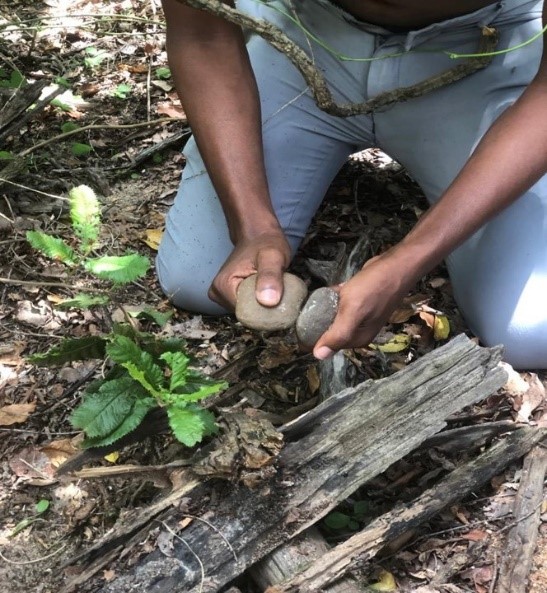
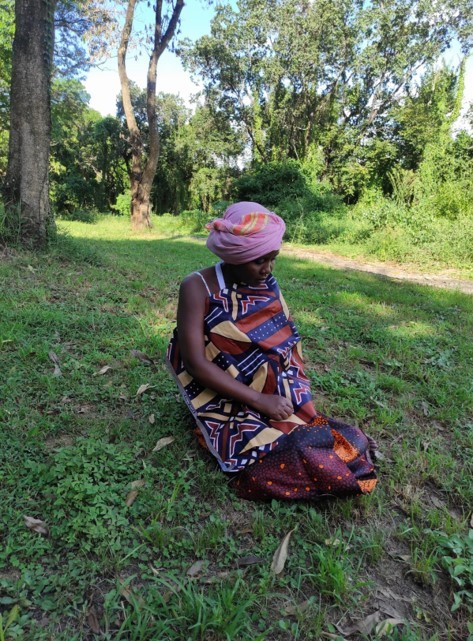
From the photographs above, it is intended to portray the process of evolution of society's values in changing behaviour, habits, and customs. Show the importance of preserving values, especially accepting changes in the process of evolution to guarantee/improve the well-being of society (In the context of preserving our identity even with the transformation of values).”
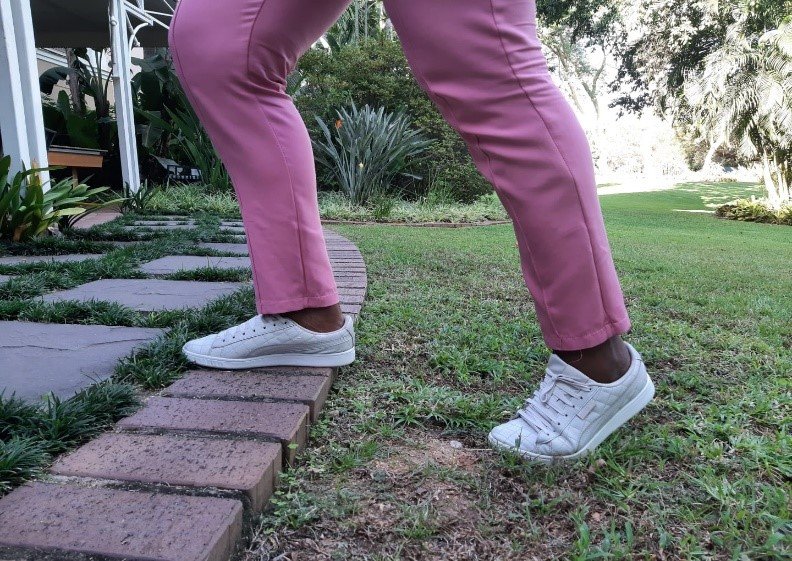
Participant accessing the hotel facilities which denotes inclusivity.
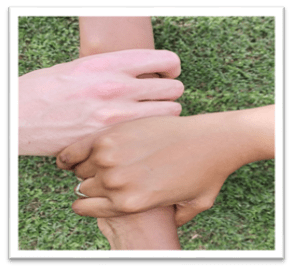
Unity of diverse races and cultures as a symbol of peace.
